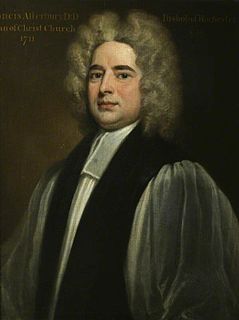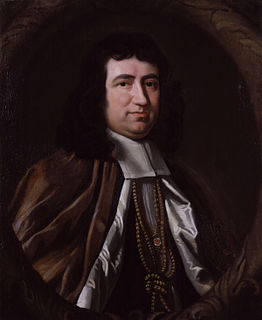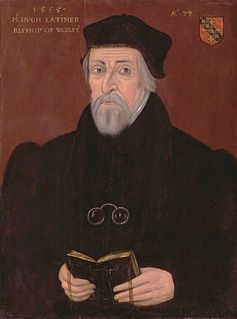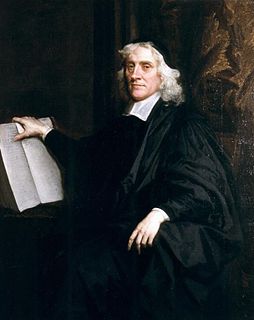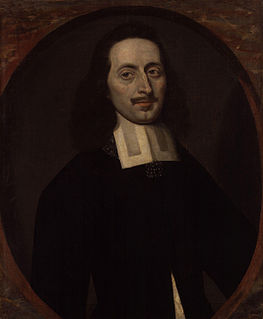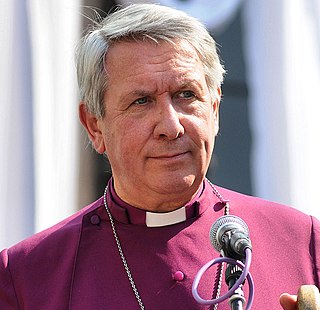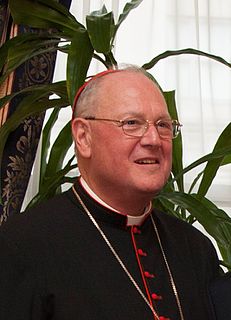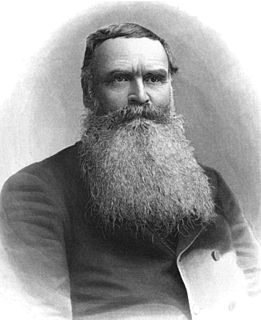A Quote by Pope Dionysius
Our Lord Jesus Christ made the merciful shepherding of His sheep the proof of love for Himself (cf. Jn. 21:15-17). He denounces as 'wicked' the servant who refused to pardon the debt of his fellow servant and who did not share in even the smallest way, the immense kindness that was bestowed on himself; that he should suffer the fate which he dealt is plainly shown to be right (cf. Mt. 18:32-33).
Quote Topics
Related Quotes
A man who has been assiduous in acquiring the fruits of love will not cease loving even if he suffers a thousand calamities. Let Stephen, the disciple of Christ, and others like him persuade you of the truth of this (cf. Acts 7:60). Our Lord Himself prayed for His murderers and asked the Father to forgive them because they did not know what they were doing (cf. Luke 23:34).
O man, do you believe that Christ is God? If you believe, fear, and keep His commandments? there is no other God but He (cf. Dt. 4:35). To Him no one is equal, nor can become equal (cf. Is. 40:18). He is Ruler of all things, the Judge of all, the King of all, the Maker of light and the Lord of life. He is the Light that is ineffable, inaccessible (cf. I Tim. 6:16), and He is the Only One. By His appearing He causes all His enemies to vanish before His face (cf. Ps. 68:2 f.), as well as those who do not perform His commandments, just as the sun when it rises drives away the darkness of night.
... you... are stones of the temple of the Father, prepared for the Father's building, and drawn up on high by the instrument of Jesus Christ, which is the Cross (cf. Jn. 12:32), making use of the Holy Spirit as a rope, while your faith was the means by which you ascended, and your love the way which led up to God. You, therefore, as well as all your fellow-travelers, are God-bearers, temple-bearers, Christ-bearers, bearers of holiness, adorned in all respects with the commandments of Jesus Christ.
The Lord gave the wonderful promise of the free use of His name with the Father in conjunction with doing His works. The disciple who lives only for Jesus' work and kingdom, for His will and honor, will be given the power to appropriate the promise. Anyone grasping the promise only when he wants something very special for himself will be disappointed, because he is making Jesus the servant of his own comfort. But whoever wants to pray the effective prayer of faith because he needs it for the work of the Master will learn it, because he has made himself the servant of his Lord's interests.
If... God highly exalted Christ because He humbled Himself, suffered dishonour, was tempted and endured a shameful cross and death for our sake, how will He save, glorify and raise us up if we neither choose humility, nor show love to our fellows, nor gain our souls by enduring temptation (cf. Lk. 21:19), nor follow the saving Guide through the 'strait gate' and along the 'narrow way' leading to eternal life (Mt. 7:14)? To this end we were called, says Peter, the chief Apostle, ' Because Christ also suffered for us, leaving us an example that we should follow His steps' (I Pet. 2:21).
Let everybody know this. He shall be assigned to the place and to the service to which he gave and devoted himself in this life and he can be sure that in eternity he will have as his lot the service and the companionship which he preferred in this life. This is what the Lord means when He says, 'If anyone is my servant let him follow Me and where I am he will be there as my servant' (Jn. 12:26).
"Do you love me?"; "Are you my friend?". The One who scrutinizes hearts (cf. Rom 8:27), makes himself a beggar of love and questions us on the one truly essential issue, a premiss and condition for feeding his sheep, his lambs, his Church. May every ministry be based on this intimacy with the Lord; living from him is the measure of our ecclesial service which is expressed in the readiness to obey, to humble ourselves, as we heard in the Letter to the Philippians, and for the total gift of self.
[Our Lord Jesus Christ] was... carried up to heaven (Lk. 24:50-51). With a radiant cloud for a chariot, He ascended in glory (cf. Acts 1:9), entered the Holy of Holies not made by hands and sat down on the right hand of the heavenly majesty, making our human substance share His own throne and divinity.
'Lord you know that I love you...Lord, you know that I love you' (Jn 21:15-17). The Eucharist is, in a certain way, the culminating point of this answer. I wish to repeat it together with the whole Church to Him, who manifested His love by means of the Sacrament of His Body and Blood, remaining with us 'to the close of the age'
He who asks to receive his daily bread does not automatically receive it in its fullness as it is in itself: he receives it according to his own capacity as recipient. The Bread of Life (cf. Jn. 6:35) gives Himself in His love to all who ask, but not in the same way to all; for He gives Himself more fully to those who have performed great acts of righteousness, and in smaller measure to those who have not achieved so much. He gives Himself to each person according to that person's spiritual ability to receive Him.
Although the Christian is thus free from all works, he ought in this liberty to empty himself, take upon himself the form of a servant, be made in the likeness of men, be found in human form, and to serve, help and in every way deal with his neighbor as he sees that God through Christ has dealt and still deals with him.
Our forefather Adam... used his freedom to turn toward what was worse and to direct his desire away from what had been permitted to what was forbidden. It was in his power 'to be united to the Lord and become one spirit with God...' (I Cor. 6:15). But Adam was deceived and chose to cut himself off voluntarily from God's happy end for him, preferring by his own free choice to be drawn down to the earth (cf. Gen. 2:17) than to become God by grace.
Some would define a servant like this: 'A servant is one who finds out what his master wants him to do, and then he does it.' The human concept of a servant is that a servant goes to the master and says, 'Master, what do you want me to do?' The master tells him, and the servant goes off BY HIMSELF and does it. That is not the biblical concept of a servant of God. Being a servant of God is different from being a servant of a human master. A servant of a human master works FOR his master. God, however, works THROUGH His servants.
... I pray... that you may discern your affairs in a manner pleasing to God and may so act and endeavor that you may find Christ, as He even now cooperates with you, and in time to come will bestow on you abundantly the enjoyment of the illumination that comes from Him. Do not follow the wolf instead of the shepherd (cf. Mt. 7:15), nor enter into a flock that is diseased (cf. Ezek. 34:4). Do not be alone by yourself?
Your attitude should be the same as that of Christ Jesus: Who being in very nature God, did not consider equality with God something to be grapsed, but made himself nothing, taking the very nature of a servant, being made in human likeness. And being found in appearnace as a man, he humbled himself and becamse obedient to death-even death on a cross!
















